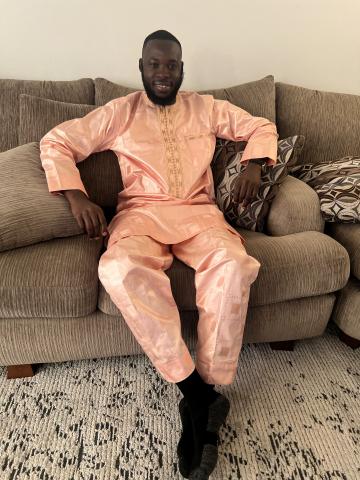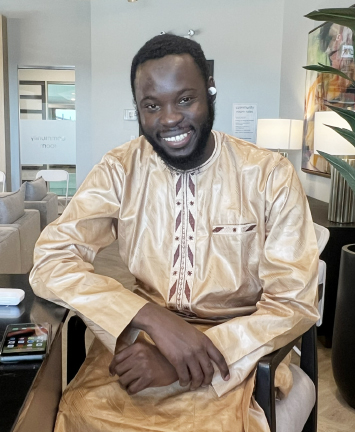I have always stuttered as far as I could remember my earliest memory of speaking. I could barely get past two phrases without being impeded by a speech block. I couldn’t fathom why my speech never came out smooth like everybody else’s. Kids and some simple-minded adults would pose random questions to me and laugh their lungs out as I tried to answer. I could barely utter a word without instigating a war between my vocal cords and articulators.
When it came to saying my name, I’d get stuck on the “Ma” syllable, and when I perceived the other person had been waiting for so long, I’d get anxious and desperately look for a way out. I’d resort to grimaces and facial distortions: teeth grinding, eye twitching, jaw clenching, head jerking, etc.
I never looked forward to the first day of school. I dreaded it and would do everything in my power to skip it or to at least be out of sight when we were asked to introduce ourselves. I’d sometimes pretend to be pressed and lock myself in the washroom. And, when I was put on the spot to introduce myself in class, I’d first attempt to write my name on a piece of paper. Some teachers understood and others didn’t.
When I reached my teenage years, I became more conscious of people’s perceptions of me when I stutter. I no longer viewed stuttering as a mere speech dysfluency; I began to add all these negative emotions to it: incompetent, worthless, unintelligent, etc. My indulgence in these negative and self-defeating thoughts caused my self-esteem to plummet to the lowest ebb and my confidence was shattered.
Speech Therapy Unheard Of
Back in my home country, The Gambia, speech therapy and fluency shaping techniques were unheard of when I was growing up. I thought my tongue had a defect, and if the supposed defect could be removed, I’d begin to speak effortlessly and fluently like everybody else.
Traditional Healing Attempts
So, my mom and I resorted to traditional healing. One traditional healer gave me a bottle of “holy water” to sip from every morning. Another healer prescribed that I catch a specific pigeon called a “marabout bird,” and mouth it for a few seconds. He claimed the pigeon would scrape off the “defect” from my tongue, and bingo, I would achieve overnight fluency.
I remember spending days in the woods hunting for a marabout bird, and when I finally caught one, I did as I was told. I was expecting a miracle to happen or at least an illusion of it — a placebo effect perhaps. Nothing happened. I was left disappointed and told my mom that I was done with traditional healers.
The McGuire Programme
In 2019, during my senior year in university, I discovered the “McGuire Programme,” a self-help program where stutterers who overcame their stutter help those struggling to overcome theirs too. I signed up for the course and traveled to Singapore to attend the three-day intensive course. It was the first time ever I was exposed to speech therapy and fluency shaping techniques.
While I did not attain overnight fluency, the program had helped me to detach all the negative emotions from my stutter. The course instructor’s understanding of the psychological aspect of stuttering, which is often overlooked, was a game changer for me. Finally, here was someone who could see underneath the iceberg.
The program taught me to embrace my stutter and to not resist it, for what you resist, persists. I came out of the program fairly fluent. However, after some time, I relapsed. I was mentally prepared for a relapse, and so I wasn’t devastated. What remained unchanged was my new perception of stuttering. It’s just a different way of speaking, and that’s it.
Institute for Stuttering Treatment and Research (ISTAR)

Currently, I am undergoing a speech therapy program with the University of Alberta’s Institute for Stuttering Treatment and Research (ISTAR). Every week or so, I have a session with a speech pathologist. My understanding of stuttering and speech as a whole is getting better every day. The goal is not to be a fluent speaker but an effective communicator. I’ve come to realize that fluency does not necessarily mean eloquence.
I barely hold back or shy away from initiating conversations with strangers. I’ve finally broken free from the clutches of my stutter. I’m no longer overwhelmed with people’s perception of my stutter. At the end of the day, everyone has something they wish they could change or have control over. It all comes down to appreciating the good and embracing the not-so good.
“Malick Camara is from The Gambia and now lives in Canada. Having lived with stuttering since childhood, he reflects on the challenges and triumphs of communication, embracing life’s imperfections along the way.”
